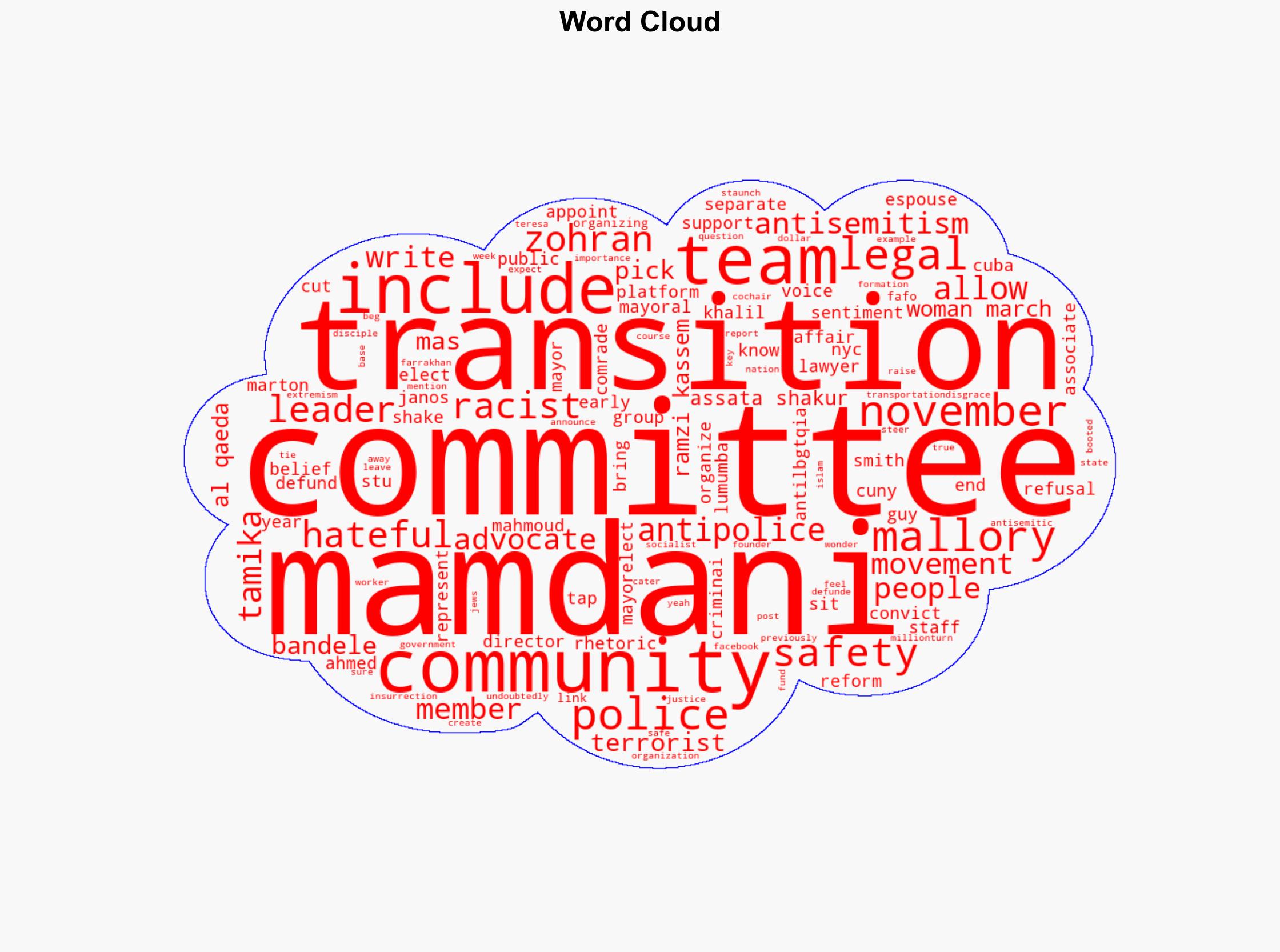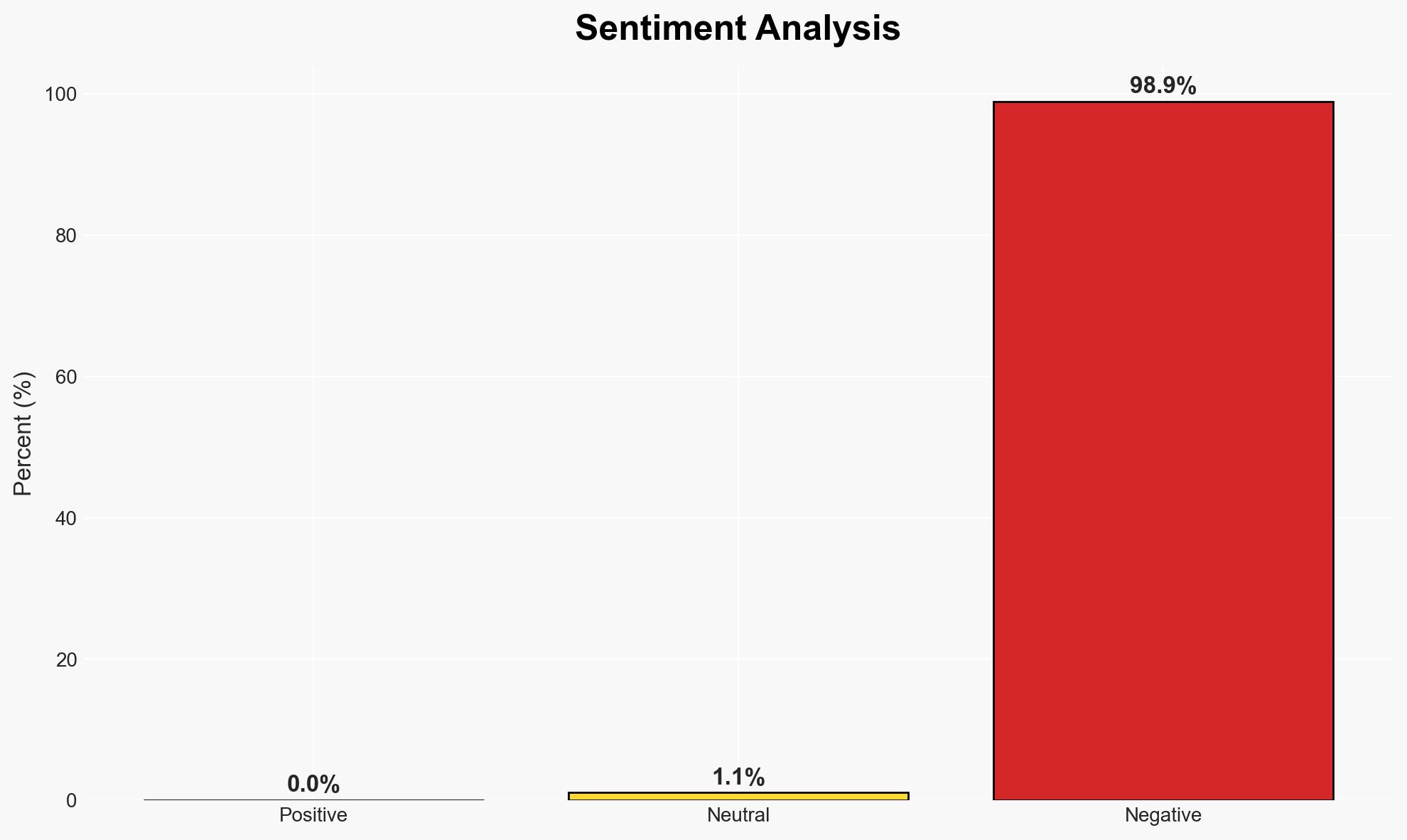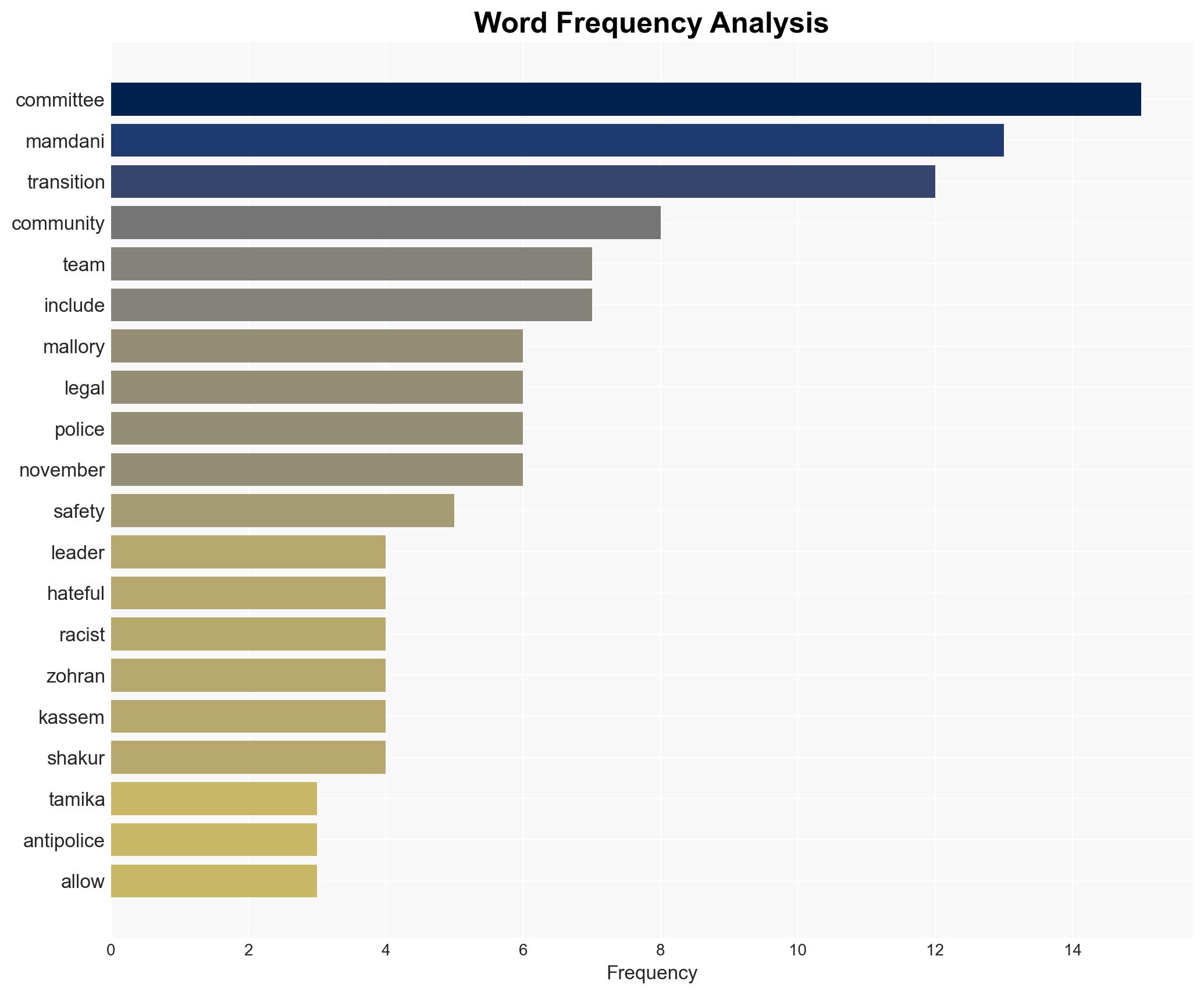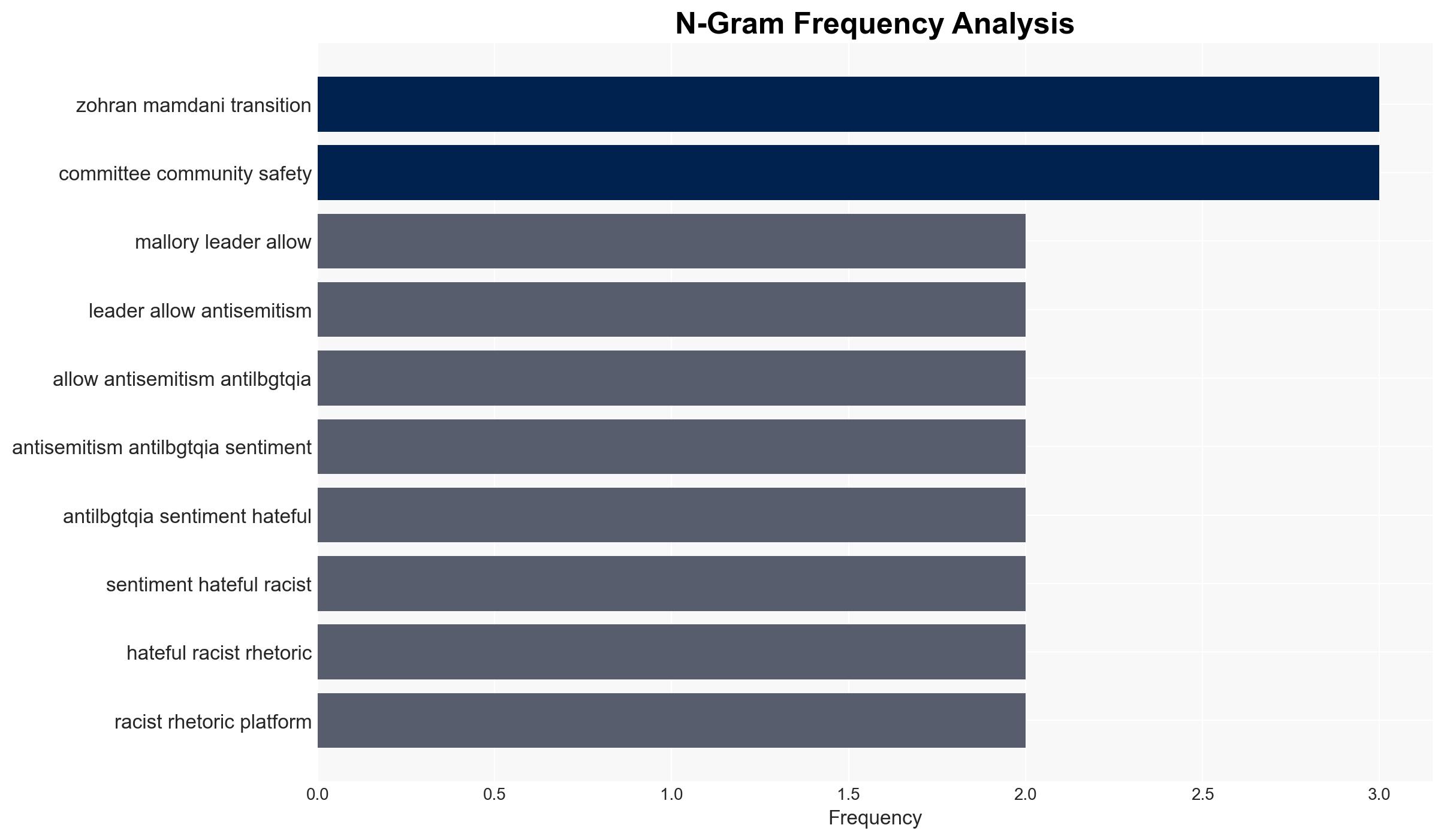Tamika Mallory’s Role in Mamdani’s Transition Team Raises Concerns Over Antisemitic and Anti-Police Rhetoric
Published on: 2025-11-26
AI-powered OSINT brief from verified open sources. Automated NLP signal extraction with human verification. See our Methodology and Why WorldWideWatchers.
Intelligence Report: Tamika Mallory Among the Many Antisemitic Anti-Police Voices on Mamdanis Transition Committees
1. BLUF (Bottom Line Up Front)
The appointment of controversial figures such as Tamika Mallory to Zohran Mamdani’s transition committees has raised concerns about the potential influence of antisemitic and anti-police sentiments within the new administration. This development could impact public safety and community relations in New York City. The most likely hypothesis is that these appointments are intended to cater to a specific political base, with moderate confidence in this judgment due to the lack of direct statements from Mamdani’s team.
2. Competing Hypotheses
- Hypothesis A: The inclusion of individuals with controversial views in Mamdani’s transition committees is a strategic move to appeal to a progressive, socialist base. Supporting evidence includes the presence of known defund-the-police advocates and individuals with past associations with antisemitic rhetoric. Contradicting evidence is limited due to the absence of explicit policy statements from Mamdani.
- Hypothesis B: The appointments are coincidental and not indicative of the administration’s future policy direction. This hypothesis is less supported due to the deliberate selection of individuals with known public stances, suggesting intentionality rather than coincidence.
- Assessment: Hypothesis A is currently better supported due to the alignment of committee member profiles with Mamdani’s known political affiliations and public statements. Key indicators that could shift this judgment include official policy announcements or public distancing from controversial figures.
3. Key Assumptions and Red Flags
- Assumptions: The appointments reflect Mamdani’s political strategy; public safety policies will be influenced by committee members; the current political climate in NYC supports progressive agendas.
- Information Gaps: Lack of official statements from Mamdani regarding the rationale for these appointments; unclear future policy directions of the transition committees.
- Bias & Deception Risks: Potential bias in source reporting due to political leanings; risk of misinterpretation of committee roles and influence.
4. Implications and Strategic Risks
This development could lead to increased polarization within New York City, affecting public trust in local governance and law enforcement. Over time, this may influence broader political dynamics and community relations.
- Political / Geopolitical: Potential for increased political activism and polarization, influencing upcoming local elections.
- Security / Counter-Terrorism: Possible changes in public safety strategies could impact crime rates and community-police relations.
- Cyber / Information Space: Likely increase in social media discourse and potential misinformation campaigns targeting the administration.
- Economic / Social: Social tensions could affect economic stability, particularly in neighborhoods with heightened police-community tensions.
5. Recommendations and Outlook
- Immediate Actions (0–30 days): Monitor public statements from Mamdani and committee members; engage with community leaders to assess sentiment and potential unrest.
- Medium-Term Posture (1–12 months): Develop resilience measures to address potential public safety challenges; foster partnerships with community organizations to mitigate polarization.
- Scenario Outlook:
- Best: Successful integration of diverse views leading to innovative public safety policies.
- Worst: Escalation of community tensions resulting in increased crime and public unrest.
- Most-Likely: Gradual policy shifts with mixed public reception, requiring ongoing engagement and adaptation.
6. Key Individuals and Entities
- Tamika Mallory – Activist with controversial views
- Zohran Mamdani – NYC Mayor-elect
- Alex Vitale – Brooklyn College Sociology Professor
- Joohyun Kang – Director, Communities United for Police Reform
- Ramzi Kassem – Attorney with controversial client history
7. Thematic Tags
National Security Threats, This brief is tagged under: national security threats; cybersecurity; counter-terrorism; regional focus. Additional tags include political activism, public safety, community relations, and social polarization
Structured Analytic Techniques Applied
- Cognitive Bias Stress Test: Expose and correct potential biases in assessments through red-teaming and structured challenge.
- Bayesian Scenario Modeling: Use probabilistic forecasting for conflict trajectories or escalation likelihood.
- Network Influence Mapping: Map relationships between state and non-state actors for impact estimation.
Explore more:
National Security Threats Briefs ·
Daily Summary ·
Support us





